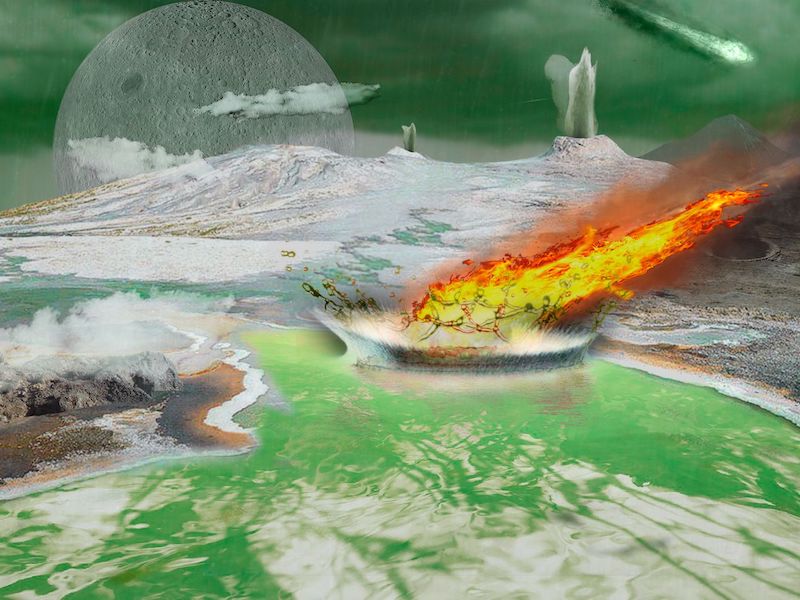Prestigious SYNERGY grant to study prebiotic processes

Together with Juan Manuel García-Ruiz (CSIC Granada), Helmut Coelfen (U Konstanz) and Mark van Zuilen (U Brest), petrologist Wolfgang Bach recently received substantial funding from the European Research Council to conduct experimental studies of processes that may have played a role in the origin of life. The PROTOS project is looking into the geochemical processes that occurred during the first billion years of this planet´s history to investigate how the transition from a mineral world to life occurred. Is it even possible that life evolved in a world of water and minerals? Minerals can self-organize as they emerge from solution and form structures that resemble primitive life forms. But what are the limits of this mineral self-organization and can it readily lead to life?
Team PROTOS will use a series of reactors -- the Hadean simulator -- to conduct experiments under Earth´s earliest environmental conditions, and to map possible pathways from an inanimate planet of rock and water to an inhabited one. Bach will study specific aspects of water-rock interactions, focusing on silica and carbon.
Further information about the project are found on the pages of University of Bremen und der University of Konstanz.

